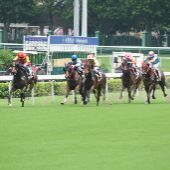8 Richest Gamblers Ever – Billy Walters, Alan Woods, and More
[ad_1]
Who are the richest gamblers ever? That’s a good question. Mainly because the answer is complicated. Are we talking the gamblers who have won all their money gambling, or are we talking polymaths who make money at whatever they turn their hands to, including gambling?
Let’s go with that latter description. Anybody can win $200 million with a single lottery ticket (well, maybe not you or me, but anybody else). But it takes someone good at many things to accumulate hundreds of millions of dollars over a lifetime.
Unlike tomorrow’s richest gamblers, there was no online gambling in the US to hone one’s skills. Not back in the day. The “internet” back then was the telephone, and computers were something major universities and the federal government used. Some of these people were making millions before color television caught on.
That said, what follows are people who made money in various fields as diverse as real estate and software development—but virtually every one of them established themselves as a titan of the gambling world.
8. Robert Moore, $200 Million (Horseracing)

Just making it onto the bottom rung of our list of gamblers who made the most money is Robert “Bob” Moore.
One of the groups of mathematicians and punters in Hong Kong’s Happy Valley horseracing milieu, Bob Moore, brought a mania to gambling that was not the better for the copious amounts of cocaine he imbibed.
According to legend, in 1983, Moore arrived in Hong Kong with $5 (AUD) in his pocket. He quickly found work with Bill Benter and Alan Woods, who ran a successful horseracing “consultancy.”
The native New Zealander earned his keep with his careful review of horseracing videos to determine which horses might have won a race otherwise but were impeded in some way (bump, stumble, or otherwise blocked) that precluded the win. His input dramatically improved the accuracy of the Benter/Woods betting algorithms.
Moore had a chaotic relationship with both Benter and Woods, working with both, then when the two split up, for Benter, then for Woods—during which time he allegedly attempted to sell Benter’s racing data to Woods.
Moore was a manic punter, sometimes wagering as much as $2 million a day—a habit even more expensive than his love of cocaine. Still, he saw nearly 40% returns on his wagering.
In the late ‘90s, Moore had a disagreement with the Hong Kong Jockey Club that resulted in the Club barring him from wagering on horse races in Hong Kong.
In 1997, Moore was found dead in the kitchen of his Happy Valley home by his estranged wife. The cause of death was an overdose of sleeping pills.
7. Dan Bilzerian, $200 Million (Poker)
A poker player is on of the richest gamblers ever. Born in 1980, Dan Bilzerian is the son of corporate raider Paul Bilzerian, who set Dan (and his brother, fellow poker player Adam Bilzerian) with trust funds.
If we had a Bombast Division on our list of the richest gamblers in history, Dan Bilzerian would be Number One, easily.
Bilzerian has made various outlandish claims concerning his youth. Some include the following that I’ve listed for you below.
- Dropped out of four high schools in three years
- Missed graduation from the US Naval Academy because he was arrested and jailed for possessing a machine gun
- Got kicked out of SEAL training three weeks before completing the course (“basically,” he says, “for pissing off an officer”)
- Attended the University of Florida with a dual major of criminology and business for four years before quitting to pursue poker at the tournament level

He finished 180th in the 2008 WSOP Main Event. In 2013, he claimed on Twitter that he had won $10,8 million in a single night of poker. No one else has stepped forward to confirm his declaration, but it could happen.
While he continues to play poker, his fortune has resulted chiefly from his ownership of the Toronto-based company, Ignite International Brands Ltd., which sells electronic cigarettes, CBD oils, and water bottles. Some critics also note that a good proportion of his net worth is due to inheritance from his father.
Oh, and during the 2015 general elections, Bilzerian announced his candidacy for the President of the United States.
He didn’t win.
Incidentally—and for some odd reason—you won’t find Bilzerian on my list of the richest poker players ever.
6. Billy Walters, $250 Million (Sports Wagering)

Born in 1946, Billy Walters had a tough childhood, losing his father at the age of 18 months and being abandoned by his alcoholic mother shortly after that.
Billy and his two older sisters were raised by his grandmother. Their rural home in Munford, Kentucky, had no running water or indoor plumbing.
Walters always attributed his strong work ethic to his grandmother, who worked several jobs while raising him and his sisters. For his part, Walters borrowed money to buy a power mower when he was seven years old to start a lawn-mowing business; when he was nine, he borrowed again to create a paper route.
Can you say “Horatio Alger”? I knew that you could.
In 1965, Walters went to work for a local automobile dealership, and his success there was such that he was hired as the sales manager for a competing dealership in 1967. By 1981, he owned his auto sales business, wholesaling cars to dealers throughout the southern states.
An occasional gambler since he was nine years old, by the time he was 22, he had reportedly lost $50,000 by the time he was 22. Not an auspicious starting record, to be sure, but walers was just getting started.
In 1986, Billy and a partner convinced the Golden Nugget in Atlantic City (now known as the Atlantic Club Casino Hotel, to accept a $2 million “freeze-out” at the roulette table. Play continues during a freeze-out until one of two conditions is met: the house wins the $2 million, or the player doubles his money.
It seems that Billy and his partner had identified a wheel bias at the Golden Nugget, and in 18 hours of play, their observation was accurate—their careful bets had won $2 million. Walters asked the house if they wanted to continue, and once they agreed, play resumed until Billy and his partner had accumulated $3.8 million.
Throughout his professional wagering career, Walters bet on college and pro football, baseball, and basketball.
In 30 years, he had only a single losing year.
He eventually had to rely on runners to place bets for him so that the bookies weren’t aware of who was placing the bet.
5. Alan Woods, $460 Million (Blackjack & Horseracing)
Alan Woods studied mathematics at the University of New England in Armidale, NSW, Australia, but dropped out a few months before graduation.
He played bridge socially and started playing video poker in the casinos in Armidale. He would later reminisce of that video poker experience that he was “a losing player.”
Woods worked as an insurance actuary for a time, got married in 1972, and settled down to a staid, middle-class life. Until his wife left him in 1979, he returned to casinos and blackjack.
In a few months, he’d won $16,000 (AUD), and he moved to Las Vegas, Nevada, where he quickly made more than $100,000 playing blackjack in the casinos.
With Woods’ mathematical background, he identified horse racing as particularly vulnerable to advantage wagering and that Hong Kong’s venerable Happy Valley, with its relatively limited number of competing horses, was ripe.
There, Woods met Bill Benter, and together, the two developed a horse betting system that earned them and other partners hundreds of millions of dollars. Wood would later split from Benter and form his own wagering operation.
Woods died in 2008 at the age of 62, shortly after having been diagnosed with appendiceal cancer. His net worth was $670 million (AUD)—enough to keep him safely on the richest gamblers of all time for the foreseeable future.
4. Zeljko Ranogajec, $610 Million (Blackjack, Keno, & Horseracing)

Keno? Seriously?
That’s right, one of the richest gamblers in the world won a $7.5 million (AUD) keno jackpot back in 2010. That’s the good news. The bad news is that he invested more than that in the game to win the jackpot.
Still, Zeljko Ranogajec made money on the deal, thanks to rebates. I’ve talked about the biggest horse racing bets ever at some length, but briefly, these are bookmakers and other betting operations that offer big bettors rebates (up to 15%) of their wagers regardless of whether the punter wins or loses.
This can put break-even gamblers on the plus side of the accounting sheet and generate significant profit for bettors who are already successful.
A native Australian (his parents had emigrated to Hobart from Croatia), Ranogajec focused initially on blackjack, in which he was reputed to be among the top advantage players in the world. In fact, in 2011, Ranogajec was named to the Blackjack Hall of Fame.
Nevertheless, he was eventually banned from most Australian casinos, and it was around that time that he adjusted his wagering focus to horseracing.
His life as a punter has been controversial, to say the least. For instance, the 2011 failure of Tote Tasmania has been mainly attributed to rebates he received from the bookmaker.
And the Australian Tax Office (ATO) has spent the last three decades looking into Ranogajec’s wagering, particularly about his “punters club.” In 2012, the ATO successfully entered into a confidential settlement with Ranogajec and fellow members of the punters club for tax irregularities between 2004 and 2011.
Currently, a recluse who may be in Europe, Ranogajec is responsible (reportedly) for up to a third of international wagering firm Betfair’s Australian handle.
3. Edward Thorp, $800 Million (Blackjack & Baccarat)
Every would-be card counter at the blackjack table should have a home shrine dedicated to Edward Thorp. Who he, you ask—somewhat ungrammatically, I might add?
He’s the guy who proved definitively that the house advantage in blackjack could be overcome by card-counting.
Born in 1932 in Chicago, Illinois, Thorp moved to southern California at an early age with his family. He took an undergraduate degree in physics at UCLA, then went on to take his Ph.D. there, as well.
He used one of the first mass-produced computers capable of handling floating-point arithmetic—the IBM 704—to develop and hone his blackjack gaming theories.
Fun Fact
It is now illegal to use a “wearable computer” in Las Vegas, thanks to Thorp’s pioneer use of one.

To test his blackjack theories, Thorp enlisted the financial assistance of Manny Kimmel—a professional gambler and former bookmaker (with ties to the underworld that Thorp may or may not have been aware of).
Thorp first visited various Reno and Lake Tahoe casinos with a $10,000 bankroll and was successful at beating the house advantage in blackjack, winning $11,000 over the weekend.
News of his unique system spread, and soon the gambling world was clamoring for the full details. Thorp wrote the book now considered the first guide to card-counting—Beat the Dealer: A Winning Strategy for the Game of Twenty-One—in 1966.
His book sold 700,000 copies, which put it on the New York Times bestseller list. Suddenly, Thorp was a celebrity.
Thorp also devised a wearable computer that could be used to monitor a roulette table and could suggest vulnerable numbers. This, too, proved a success.
And he developed team strategies not only for blackjack and roulette, baccarat, and even backgammon. With his focus on table games like blackjack, roulette, and baccarat, Thorp is clearly one of the richest casino gamblers of all time.
While Thorp made most of his money as a hedge fund manager, his gambling and his gaming theory contributions made him one of the inaugural members of the Blackjack Hall of Fame.
2. Bill Benter, $1 Billion (Horseracing & Blackjack)
Barred from the blackjack tables in Las Vegas two years into his adult life, Bill Benter started life in Pittsburgh, Pennsylvania. After picking up a degree in physics, he immediately decided to use his mathematical skills in a slightly different milieu: casino gambling. More specifically, at the blackjack tables.
It took seven successful years before the casinos banned him. While the casinos were aware of blackjack teams, they weren’t as quick to notice singletons, probably because the lightning-fast calculations required to succeed were beyond the skills of most gamblers.
Not so for Benter. Still, he suddenly found himself with no source of income, so he and a buddy tried their hand at handicapping horse races. After some positive testing, the duo identified the two horse racing tracks in Hong Kong as particularly vulnerable to their unique handicapping algorithm. In 1984, they moved to an apartment in Happy Valley.
Benter’s handicapping software comprises 750 lines of code that sifts through mountains of data on each horse to determine the one most likely to win any particular race.
His enterprise partners included Alan Woods (#5 above) and Robert Moore (#8 above). Interestingly, that trio was acquainted—and sometimes did business—with Zeljko Ranogajec (#4 above).
Small world, eh?
In any case, he soon placed $250,000 wagers on horses running at Happy Valley, and his gambling syndicate regularly bet over a million dollars daily.
In 1996, the Hong Kong Jockey Club decided they didn’t care for that level of wagering from one entity and banned Benter from placing wagers over the phone (the most common pre-smartphone method of making a bet on the ponies in Hong Kong back then).
Benter now runs a U.S. medical transcription software company (for which he did the initial programming back in the year 2000); a large portion of his net worth is directly attributable to the wildly successful handicapping software he wrote 40 years ago.
1. Tony Bloom, $1.3 Billion (Sports Betting & Poker)

Who is the richest gambler ever? That would be none other Tony Bloom. Known as The Lizard for his coldblooded poker play, Tony Bloom is the punter’s punter. He gambles on virtually all sports and enjoys poker as well as a variety of other casino games.
Born Anthony Grant Bloom in Brighton, England, in 1970, As legend has it, Bloom made his first wager as a nine-year-old, putting the money he’d saved into a slot machine. While only Bloom knows where this occurred, it appears to have inspired him to risk big to win big rewards.
He next appears on our gamble radar in his mid-teens, using a fake ID to place wagers at local sportsbooks to bet on various soccer teams. He started regularly winning, even at that young age, but his punting was curtailed when he was caught using the fake ID and had to stop.
When he was of legal age, he picked up right where he’d left off: Betting on soccer. By 2009, his wise wagers had earned him enough to enable him to buy his favorite team, the Brighton & Hove Albion. Later he would add a majority share in the Belgian First Division A team Royale Union Saint-Gilloise.
He also made his mark in the poker world, with a final-table appearance in the World Poker Tournament and final table seats in the first two Poker Million events (2000 and 2003) as well as the final Poker Million in 2010. He’s finished in the money in 11 WSOP tournaments.
Bloom has made a significant portion of his fortune in the real estate business. Still, his lifelong dedication to sports and gambling makes him a natural for anyone’s richest gamblers ever list.
Let It Ride
Other gamblers just off-screen should be moving into the top eight sooner than later. The internet has helped with that.
It’s so much easier than forty years ago to place a bet and collect your winnings.
Online casinos and sportsbooks abound, and you on the thing you can bet on, the future’s richest gamblers of all time are even now playing at the best sports betting sites.
[ad_2]
Source link